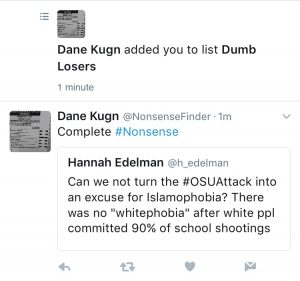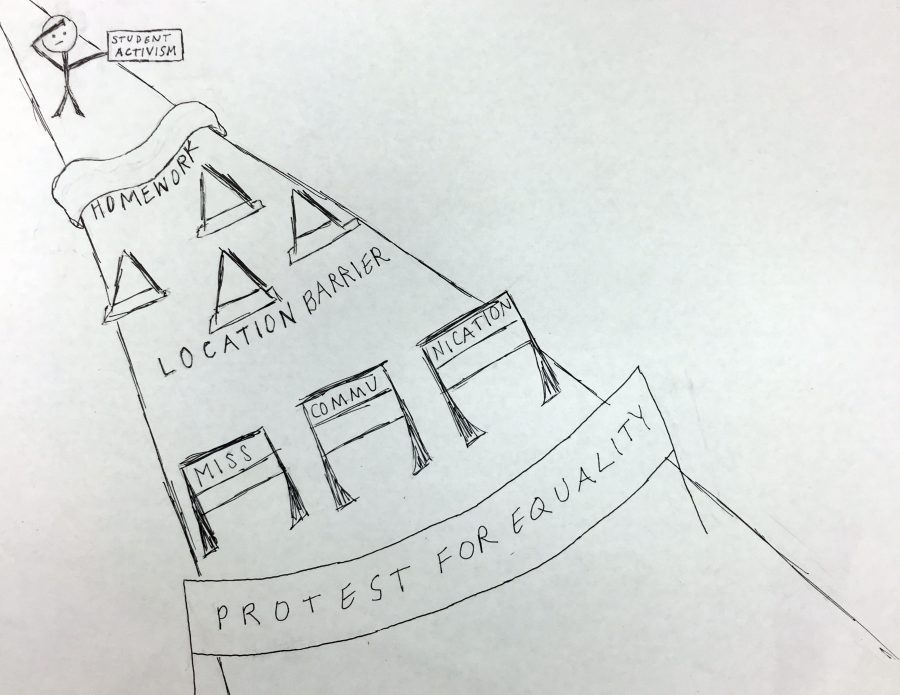High school students have right to protest, too
It was while wandering the streets of the Flats in Cleveland for half an hour as icy wind drew tears from my eyes that I realized there was a problem. My friend and I had driven into the city for a protest supporting immigration reform after school and, being from the suburbs, the lack of an exact address to plug into the GPS meant we were hopelessly lost. By the time we were able to find the actual location (which happened to be a ten minute drive away), our fingers were frozen and there was no chance of arriving in time for the start of the march.
This was the second instance in the span of just one month that we’d made the 30 minute trek from home, on school nights no less, in failed attempts to make our voices heard. As politically active individuals, not to mention members of minority groups in the wake of a terrifying new presidency, protesting is a way that we can feel that we’re helping to make a change.
At least, we would be helping to make a change if miscommunication, school obligations and suburban residency weren’t factors. Instead, we ended up wasting entire afternoons driving back and forth, spending far too much money on gas and parking, and returning home exhausted and disappointed.
It’s the right of every U.S. citizen to be able to assemble–however, as a suburban youth, it is nearly impossible to do just that. In light of Donald Trump’s recent immigration regulations, protests erupted in city centers and airports across the nation. It should not be so inordinately difficult for students, some of whom are directly impacted by this legislation, to have the ability to voice their opinions.

Just one example of harassment I’ve personally received on Twitter.
Yes, there’s the good ol’ millennial social media guru stereotype, and sure, platforms like Twitter make it easier to share opinions and outrage. These same platforms also allow the so-called Alt-Right (better known as Neo-Nazis) to harass youth for having different opinions. With just one post bashing homophobia, I was told by 10 random adults to kill myself, that I was a “libtard” and that I was going to hell. Without the physical support of others around me, it’s not very difficult to fall into a morbid mortality that maybe my beliefs in human decency are not in the majority.
If local protest organizations such as the Cuyahoga County Progressive Caucus and Black Lives Matter Cleveland hope to increase support and activity, measures need to be taken to accommodate for and include youth who, as of now, are unable to attend rallies and meetings or simply don’t know that these organizations exist. Social justice organizations should take the time to reach out to youth leaders about upcoming events. Whether this is done by launching more expansive online campaigns, encouraging student participation in person or implementing offshoots of programs at local levels, the growth in involvement will speak for itself.
It’s easy to forget that many students are just as afraid as the working, adult populace of recent social and political trends. Being able to take a stand and surround ourselves with a supportive community of like-minded individuals is empowering beyond belief.
So please, protesters: Don’t forget the younger generation. Don’t make us feel helpless because of education, laws and residence. Let us take a stand alongside you and feel confident in our ability to do so.
As Hillary Clinton said, we are always “stronger together.” It’s time we start acting like it.






